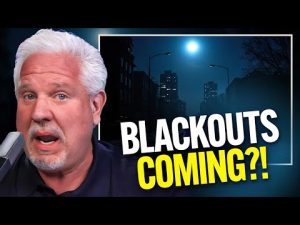In the bustling world of politics, Alabama Senator Tommy Tuberville has made headlines once again, this time advocating for a decisive change in leadership at the Pentagon. Tuberville’s endorsement of Pete Hegseth for a key position in defense is characterized by a sense of urgency and the belief that the military needs a sweeping overhaul. Over the years, Tuberville argues, the military has faced serious challenges that have eroded its strength, morale, and ability to function effectively. It’s time, he insists, for a new direction.
Senator Tuberville doesn’t mince words when discussing the history of military leadership over the last few decades. Citing past presidents, he believes that the military has endured significant harm, particularly under Democratic leadership, starting with Bill Clinton and continuing through Barack Obama. He asserts that these administrations have undermined military effectiveness by pushing divisive policies and quotas that detract from the primary mission of the armed forces: to protect the United States and its allies. He paints a picture of a military institution that has lost its focus, citing disastrous events like the withdrawal from Afghanistan as evidence of leadership failures.
At the heart of Tuberville’s fervor is the belief that Pete Hegseth embodies the kind of leadership the military needs. Hegseth, at just 44 years old, is not a traditional general; rather, he has the life experience of a warfighter and the communication skills to connect with today’s military personnel. Tuberville emphasizes that the Pentagon requires a “drill sergeant” and not just more generals who might be out of touch with the needs of the troops on the ground. He sees Hegseth’s blend of military experience, education, and pragmatic mindset as instrumental in reviving the armed forces.
Another point of concern for Tuberville is the declining morale within the military ranks. He believes that with the increased focus on diversity and social issues, the core mission of the military has become muddied, leading to recruitment challenges. According to him, the military must be based on merit and the ability to fight effectively, not on adherence to social agendas. The senator argues that the recent trends represent an effort to sow discord within the armed forces, a strategy he deems detrimental to national security.
However, Tuberville’s endorsement of Hegseth comes at a time when the media landscape has become increasingly volatile. Allegations, which Tuberville deems questionable, have arisen against Hegseth, drawing parallels to the contentious Kavanaugh hearings. Tuberville expresses frustration over how these accusations can derail a candidate capable of making much-needed changes in the military. He believes that Hegseth’s past accomplishments and patriotic service should be the focus, rather than unsubstantiated rumors aimed at tarnishing his reputation.
In conclusion, Senator Tommy Tuberville’s staunch support for Pete Hegseth underscores a larger narrative about the desired transformation of the U.S. military. It’s a narrative filled with urgency, a call to action, and a touch of the political drama that often accompanies high-profile appointments. As the nation grapples with these military challenges, Tuberville’s voice echoes a belief that change is not just necessary, it’s imperative for the security and effectiveness of the armed forces.







